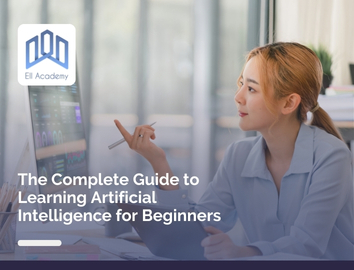- Development
- Business
- Design
- Marketing
- Technology
- Microsoft 365 (Soon)
- Microsoft Azur (Soon)
- Data Science
- Microsoft Power Automate (Soon)
- Microsoft Database (Soon)
- Microsoft Programming (Soon)
- Oracle Database (Soon)
- Oracle Cloud (Soon)
- Oracle Programming (Soon)
- Google Cloud (Soon)
- Cisco Networks (Soon)
- Google App Development (Soon)
- AWS Cloud (Soon)
- AWS Solutions Architect (Soon)
- AWS Networks (Soon)
- AWS Data Engineering (Soon)
- AWS Security (Soon)
- AWS App Development (Soon)
- Meta Marketing (Soon)
- PMI Management (Soon)
- CIW Web and Internet Technologies (Soon)
- CIW Design (Soon)
- CIW Data Engineering (Soon)
- CIW E-Commerce (Soon)
- Microsoft Web (Soon)
- Oracle Data Science (Soon)
- Google Marketing (Soon)
- Google Data Engineering (Soon)
- IBM App Development (Soon)
- Microsoft Server Administration (Soon)
- Microsoft Security (Soon)
- CIW App Development (Soon)
- Microsoft App Development (Soon)
- Zoho ERP (Soon)
- Google Design (Soon)
- AWS Database (Soon)
- Microsoft Education Technology (Soon)
- MySQL (Soon)
- Services Management
- Educational Technology
- Leadership and Strategic Management (Soon)



- Home
-
Categories
-
Development
-
All
- Developing ASP.NET Core MVC Web Applications
- CIW Certificate Web Foundations Associate
- CIW Certificate Web Development Professional
- CIW Certificate Web Security Associate
- EII Course
- Certified Flutter Application Development
- Google Certified Associate Android Developer
- IBM Certified Mobile Application Developer - Mobile Foundation V8.0
- CIW Certificate Mobile Application Developer
- Java Programming
- Java Fundamentals
- Java Foundations
- Microsoft Certified C#
- Python
- Developing SQL 2016 Databases Course
- Oracle Database Programming with PL SQL
- Oracle Database Foundations
- Database Design and Programming with SQL
- Oracle Applied Database Systems
- Oracle Application Express (APEX) Development Foundations
- MySQL 8.0 Database Developer
- MySQL 8.0 Database Administrator
- AWS Certified Database – Specialty
- Microsoft Certified Power Platform Solution Architect Expert
- Microsoft Certified Power Platform Functional Consultant Associate
- Microsoft Certified Power Platform Developer Associate
- Web Development
- Mobile Development
- Programming languages
-
Database Design and Development
- Developing SQL 2016 Databases Course
- Oracle Database Programming with PL SQL
- Oracle Database Foundations
- Database Design and Programming with SQL
- Oracle Applied Database Systems
- Oracle Application Express (APEX) Development Foundations
- MySQL 8.0 Database Developer
- MySQL 8.0 Database Administrator
- AWS Certified Database – Specialty
-
Game Development
- Application Development Platforms
-
All
-
Business
-
All
- Microsoft 365 Certified Teams Administrator Associate
- Microsoft 365 Certified Teams Voice Engineer Expert
- Microsoft 365 Security Administrator Associate
- Microsoft 365 Collaboration Communications Systems Engineer Associate
- Microsoft 365 Enterprise Administrator Expert
- Microsoft 365 Messaging Administrator Associate
- Microsoft Azure Administrator Associate
- Microsoft Certified Azure Virtual Desktop Specialty
- Microsoft Certified Azure Stack Hub Operator Associate
- Microsoft 365 Certified: Modern Desktop Administrator Associate
- Microsoft Certified Windows Server Hybrid Administrator Associate
- PMI-Agile Certified Practitioner (PMI-ACP)
- ICAgile Certified Professional (ICP)
- AgilePM Foundation – APMG
- Certified ScrumMaster (CSM)
- Microsoft Certified 365 Supply Chain Management, Manufacturing Functional Consultant Associate
- Microsoft Certified 365 Supply Chain Management Functional Consultant Expert
- Microsoft Certified 365 Supply Chain Management Functional Consultant Associate
- Microsoft Certified 365 Finance Functional Consultant Associate
- Microsoft Certified 365 Business Central Functional Consultant Associate
- Microsoft Certified 365 Fundamentals (ERP)
- Microsoft Certified 365 Finance and Operations Apps Developer Associate
- Zoho ERP For Bigenners
- Zoho ERP For Intermediates
- Zoho ERP For Experts
- CIW Certificate E-Commerce Services Specialist
- Microsoft Certified 365 Commerce Functional Consultant Associate
- Microsoft Certified 365 Sales Functional Consultant Associate
- Microsoft Certified 365 Customer Service Functional Consultant Associate
- Microsoft Certified 365 Fundamentals (CRM)
-
Administration
- Microsoft 365 Certified Teams Administrator Associate
- Microsoft 365 Certified Teams Voice Engineer Expert
- Microsoft 365 Security Administrator Associate
- Microsoft 365 Collaboration Communications Systems Engineer Associate
- Microsoft 365 Enterprise Administrator Expert
- Microsoft 365 Messaging Administrator Associate
- Microsoft Azure Administrator Associate
- Microsoft Certified Azure Virtual Desktop Specialty
- Microsoft Certified Azure Stack Hub Operator Associate
- Microsoft 365 Certified: Modern Desktop Administrator Associate
- Microsoft Certified Windows Server Hybrid Administrator Associate
-
Management
- Project Management
-
Enterprise Resource Planning (ERP)
- Microsoft Certified 365 Supply Chain Management, Manufacturing Functional Consultant Associate
- Microsoft Certified 365 Supply Chain Management Functional Consultant Expert
- Microsoft Certified 365 Supply Chain Management Functional Consultant Associate
- Microsoft Certified 365 Finance Functional Consultant Associate
- Microsoft Certified 365 Business Central Functional Consultant Associate
- Microsoft Certified 365 Fundamentals (ERP)
- Microsoft Certified 365 Finance and Operations Apps Developer Associate
- Zoho ERP For Bigenners
- Zoho ERP For Intermediates
- Zoho ERP For Experts
-
Human Resources
- E-Commerce
-
Media
- Customer Relationship Management (CRM)
-
All
- Design
- Marketing
-
Technology
-
All
- Microsoft Azure Security Engineer Associate
- DevOps Engineer Expert
- Microsoft Certified Security Operations Analyst Associate
- Microsoft Certified Information Protection Administrator Associate
- Microsoft Certified Identity and Access Administrator Associate
- Microsoft Certified Cybersecurity Architect Expert
- Microsoft Certified: Azure for SAP Workloads Specialty
- Microsoft Certified Azure Solutions Architect Expert
- Microsoft Certified Power Platform Fundamentals
- Microsoft Certified 365 Finance and Operations Apps Solution Architect Expert
- AWS Certified Security - Specialty
- AWS Certified DevOps Engineer – Professional
- Oracle Cloud Infrastructure Foundations
- CCNA
- Cisco Certified Support Technician (CCST)
- Cisco Customer Success Manager
- Cisco Meraki Solutions Specialist
- Cisco Renewals Manager
- Google Certified Professional Cloud Architect
- Google Certified Professional Data Engineer
- Google Certified Associate Cloud Engineer
- CIW Certificate Internet Business Associate
- Microsoft Certified Azure Developer Associate
- AWS Certified Cloud Practitioner
- AWS Certified Solutions Architect – Associate
- AWS Certified Advanced Networking – Specialty
- AWS Certified Developer – Associate
- Microsoft Certified Power Automate RPA Developer Associate
- Microsoft Certified Azure IoT Developer Specialty
-
DevOps & Security
- Microsoft Azure Security Engineer Associate
- DevOps Engineer Expert
- Microsoft Certified Security Operations Analyst Associate
- Microsoft Certified Information Protection Administrator Associate
- Microsoft Certified Identity and Access Administrator Associate
- Microsoft Certified Cybersecurity Architect Expert
- Microsoft Certified: Azure for SAP Workloads Specialty
- Microsoft Certified Azure Solutions Architect Expert
- Microsoft Certified Power Platform Fundamentals
- Microsoft Certified 365 Finance and Operations Apps Solution Architect Expert
- AWS Certified Security - Specialty
- AWS Certified DevOps Engineer – Professional
-
Cloud & Networking
- Oracle Cloud Infrastructure Foundations
- CCNA
- Cisco Certified Support Technician (CCST)
- Cisco Customer Success Manager
- Cisco Meraki Solutions Specialist
- Cisco Renewals Manager
- Google Certified Professional Cloud Architect
- Google Certified Professional Data Engineer
- Google Certified Associate Cloud Engineer
- CIW Certificate Internet Business Associate
- Microsoft Certified Azure Developer Associate
- AWS Certified Cloud Practitioner
- AWS Certified Solutions Architect – Associate
- AWS Certified Advanced Networking – Specialty
- AWS Certified Developer – Associate
- Robotic Process Automation (RPA)
- Internet of Things (IoT)
-
All
- Microsoft 365
- Microsoft Azur
-
Data Science
-
All
- Microsoft Azure AI Engineer Associate
- Microsoft Azure AI Fundamentals
- Microsoft Azure Enterprise Data Analyst Associate
- Artificial Intelligence with Machine Learning in Java
- CIW Certificate AI Associate
- CIW Certificate AI Data Science
- AWS Certified Machine Learning – Specialty
- course test 22
- Course 11
- EII
- Introduction to AI and Machine Learning
- Microsoft Azure Data Fundamentals
- AWS Certified Data Analytics – Specialty
-
Artificial Intelligence and Machine Learning (AI/ML)
- Microsoft Azure AI Engineer Associate
- Microsoft Azure AI Fundamentals
- Microsoft Azure Enterprise Data Analyst Associate
- Artificial Intelligence with Machine Learning in Java
- CIW Certificate AI Associate
- CIW Certificate AI Data Science
- AWS Certified Machine Learning – Specialty
- course test 22
- Course 11
- EII
- Introduction to AI and Machine Learning
- Data Analysis
-
All
- Microsoft Power Automate
- Microsoft Database
- Microsoft Programming
- Oracle Database
- Oracle Cloud
- Oracle Programming
- Google Cloud
- Cisco Networks
- Google App Development
- AWS Cloud
- AWS Solutions Architect
- AWS Networks
- AWS Data Engineering
- AWS Security
- AWS App Development
- Meta Marketing
- PMI Management
- CIW Web and Internet Technologies
- CIW Design
- CIW Data Engineering
- CIW E-Commerce
- Microsoft Web
- Oracle Data Science
- Google Marketing
- Google Data Engineering
- IBM App Development
- Microsoft Server Administration
- Microsoft Security
- CIW App Development
- Microsoft App Development
- Zoho ERP
- Google Design
- AWS Database
- Microsoft Education Technology
- MySQL
- Services Management
- Educational Technology
- Leadership and Strategic Management
-
Development
- Services
- Discover


